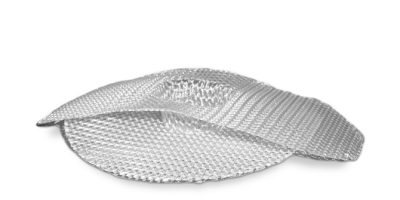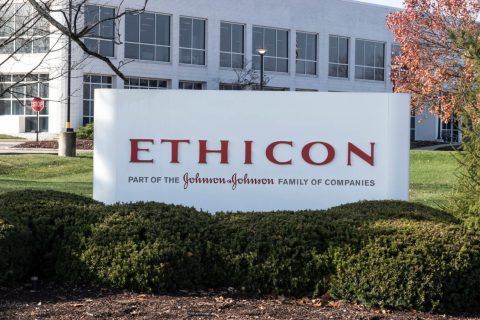Hernia Mesh Recalls
Recalled hernia mesh products include the Atrium Medical C-QUR Mesh, Bard Composix Kugel hernia patch and Ethicon Proceed Surgical Mesh. From 2005 through 2021, hernia mesh manufacturers recalled more than 211,000 units of hernia mesh.
Our content is developed and backed by respected legal, medical and scientific experts. More than 30 contributors, including product liability attorneys and board-certified physicians, have reviewed our website to ensure it’s medically sound and legally accurate.
legal help when you need it most.
Drugwatch has provided people injured by harmful drugs and devices with reliable answers and experienced legal help since 2009. Brought to you by The Wilson Firm LLP, we've pursued justice for more than 20,000 families and secured $324 million in settlements and verdicts against negligent manufacturers.
More than 30 contributors, including mass tort attorneys and board-certified doctors, have reviewed our website and added their unique perspectives to ensure you get the most updated and highest quality information.
Drugwatch.com is AACI-certified as a trusted medical content website and is produced by lawyers, a patient advocate and award-winning journalists whose affiliations include the American Bar Association and the American Medical Writers Association.
About Drugwatch.com
- 15+ Years of Advocacy
- $324 Million Recovered for Clients
- 20,000 Families Helped
- A+ BBB Rating
- 4.9 Stars from Google Reviews
Testimonials
I found Drugwatch to be very helpful with finding the right lawyers. We had the opportunity to share our story as well, so that more people can be aware of NEC. We are forever grateful for them.
- Medically reviewed by Dr. John A. Daller
- Last update: December 16, 2024
- Est. Read Time: 2 min read
Latest Hernia Mesh Recall Updates
No significant hernia mesh recalls have occurred since 2021. The Food and Drug Administration classified most from 2005 through 2021 as Class 2 recalls, indicating temporary or medically reversible side effects. C.R. Bard’s Kugel patch was a Class 1 recall, indicating serious health risks and possible death.
Three companies — Johnson & Johnson’s Ethicon, Bard Davol, and Atrium — were responsible for the most recalls.
As of February 2026, these three manufacturers, along with Covidien, faced a total of 26,234 hernia mesh lawsuits in four separate multidistrict litigations in federal court.
Which Hernia Mesh Products Have Been Recalled?
The FDA has different definitions for recalls and market withdrawals. With recalls, companies remove the product from the market voluntarily because they discovered a problem that could to legal action. The FDA rarely forces a manufacturer to recall a product.
Conversely, market withdrawals happen when the violation is not subject to legal action. Companies can take the product off the market or fix its violation to avoid a recall.
Some device recalls were due to packaging errors, while others faced market withdrawal due to high failure rates.
Severe complications included adhesions, bowel fistulas, punctured organs, device migration and bowel obstruction.
- Atrium Medical C-QUR Mesh
- In 2013, Atrium recalled over 145,000 units of C-QUR hernia mesh due to high humidity causing the mesh to stick to the package liner. The FDA classified this recall as a Class 2.
- Gentrix Surgical Matrix
- In February 2019, ACell recalled two Gentrix Surgical Matrix Thick products due to their failure to meet the company's tensile strength specifications. These meshes, made from biological materials, were designed to dissolve over time.
- Ethicon Physiomesh Flexible Composite Mesh (Market Withdrawal, Not Recall)
- Due to a high recurrence and reoperation rate, Ethicon recalled its Physiomesh Flexible Composite Mesh for laparoscopic use in Australia and Europe. In the U.S., however, it issued a 2016 market withdrawal instead of a recall.
- Ethicon Proceed Surgical Mesh
- Ethicon recalled over 18,000 units of its Proceed Surgical Mesh from 2005 to 2014. The FDA classified the recall as Class 2 due to problems such as packaging that could cause "delamination" and increase the risk of complications.
- Parietex Composite Parastomal Mesh
- In 2018, Covidien recalled 7,333 units of its Parietex Composite Parastomal Mesh due to mesh failure issues following parastomal hernia repair using the modified Sugarbaker repair technique. If your hernia mesh has been recalled, but you are not experiencing problems, you do not need to take action. If your mesh is on the recall list and you are experiencing complications, speak to your doctor immediately.
FDA Warnings, Reviews and Enforcement Actions
The FDA continually monitors hernia mesh for safety. It reviews adverse event reports from doctors, patients, manufacturers and others to identify problems with these medical devices. As of the latest update in July 2023, the agency has identified 55,000 adverse event reports related to hernia mesh.
“Many complications related to hernia repair with surgical mesh that have been reported to the FDA have been associated with recalled mesh products that are no longer on the market. Pain, infection, recurrence, adhesion, obstruction and perforation are the most common complications associated with recalled mesh.”
According to the University of California San Francisco Medical Center, “Many complications related to hernia repair with surgical mesh that have been reported to the FDA have been associated with recalled mesh products that are no longer on the market. Pain, infection, recurrence, adhesion, obstruction and perforation are the most common complications associated with recalled mesh.”
The FDA can take enforcement action if a company fails to make changes after FDA inspections of manufacturing facilities. In 2015, for example, the FDA requested a court injunction against Atrium Medical due to repeated warnings about issues at its C-QUR factory. The injunction blocked C-QUR manufacturing and sales until Atrium fixed the problems.
-
2021
Covidien recalled 129 units of Parietex hydrophilic anatomical mesh used in inguinal hernia repair after packages were found to contain the wrong device.
-
2018
The FDA averaged more than 500 monthly adverse event reports for all types of surgical mesh. This included almost 300 reports for Physiomesh and 200 for C-QUR in the year's first three months.
-
2016
Ethicon issued a market withdrawal of Physiomesh Flexible Composite Mesh products.
-
2016
Two large European hernia registries reported higher than average failure rates for Physiomesh Flexible Composite Mesh.
-
2015
A federal court granted the FDA an injunction against Atrium, ordering it to stop distributing and manufacturing medical devices from its Hudson, New Hampshire, plant. The shutdown remained in effect until Atrium complied with certain Federal Food, Drug and Cosmetic Act provisions.
-
2012
The FDA issued a warning letter to Atrium Medical saying Atrium failed to address reported infections and that its sterilization process was inadequate.
-
2010
The FDA approved Ethicon’s Physiomesh Flexible Composite Mesh.
-
2006
The FDA approved Atrium’s first C-QUR mesh products.
Recalled Mesh Lawsuits and Settlements
Hernia mesh patients have sued manufacturers, alleging that the mesh was faulty and posed hidden risks. Thousands of hernia mesh lawsuits have been consolidated into separate, federal multidistrict litigations (MDLs), which allowed the courts to streamline the legal process.
- Ethicon faced 0 Physiomesh lawsuits in federal MDL 2782.
- Atrium faced 246 C-QUR mesh lawsuits in MDL 2753.
- Bard faced 23,728 lawsuits for several of its polypropylene hernia mesh brands in MDL 2846.
- Covidien faced 2,260 lawsuits in MDL 3029.
Bard Davol originally faced more than 3,000 lawsuits in one of the earliest hernia mesh MDLs for its Kugel patch. After a trial loss, they settled 2,600 lawsuits for $184 million, and MDL 1842 closed in 2017.
Calling this number connects you with a Drugwatch.com representative. We will direct you to one of our trusted legal partners for a free case review.
Drugwatch.com's trusted legal partners support the organization's mission to keep people safe from dangerous drugs and medical devices. For more information, visit our partners page.





